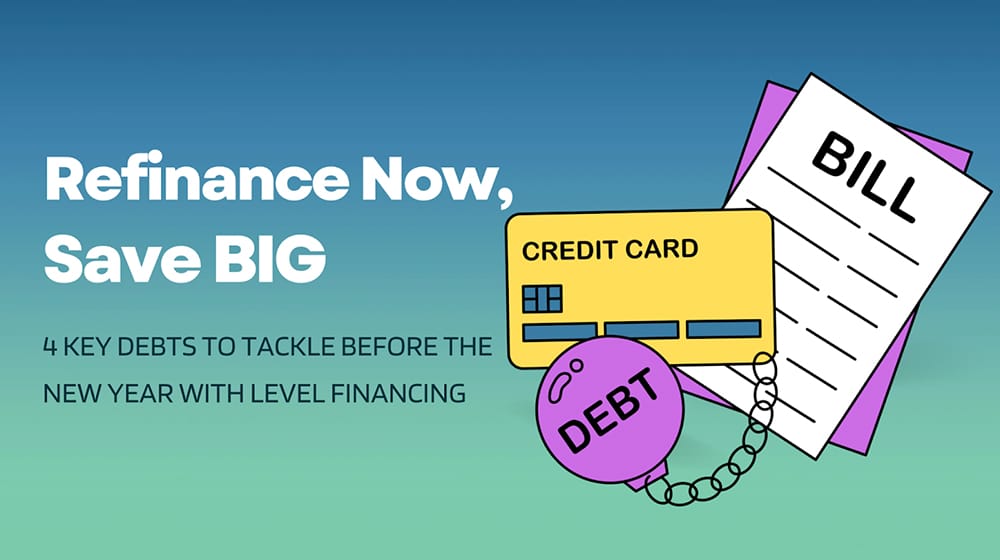Do you wish you could live without worrying about money? Achieving that objective requires effective personal financial management.
Similar to a house’s foundation, without it, everything is susceptible to collapse. Personal finance mistakes can happen, and maintaining good financial standing is essential for both your present comfort and your future security.
This article will point out some typical financial mistakes you should watch out for as you navigate the frequently difficult realm of personal finance.
#1 Not Having a Budget
One of the most common financial mistakes is not having a budget. The budget is the cornerstone of any successful personal finance plan. It serves as your financial road map, directing your choices and providing you with a general picture of your financial condition.
It’s comparable to trying to navigate a foreign location without a map if you don’t have money. A startling 57% of Americans don’t stick to a $1000 emergency budget, according to a study.
Making and following a budget is easy. Here’s how.
- List all of your sources of income: Include all of your revenue, including dividends, interest, and salary.
- List your monthly outlays: Do not disregard rare costs such as yearly memberships.
- Evaluate your income and outgoings. Look for opportunities to cut back on your expenditure if it exceeds your income.
- Modify your budget as necessary: As your financial condition changes, your budget should also adjust.
Key Takeaway: A financial plan’s critical aspect is budgeting, as it helps in comprehensive comprehension of financial status and future planning. Budgetless personal finance is like wandering in a foreign land without a map. Hence, create and adhere to it for a better future.

#2 Failing To Save For Emergencies
Financial challenges might result from life’s unforeseen turns. Emergencies can have a significant influence on one’s financial stability, from the unexpected loss of work to unforeseen medical costs.
A survey uncovered that just 39% of Americans had the money for a $1,000 emergency. This statistic highlights the importance of developing better saving and emergency preparedness practices.
Financial experts agree that having an emergency fund is important. They normally advise saving enough to pay for three to six months’ worth of spending. You can also consider opening a dedicated emergency savings account. At first, doing this might seem difficult, but these steps are doable.
- Start Small: Starting small is one of the best strategies to get your savings going. Regularly setting aside even a small sum of money adds up over time. If you save just $5 per day, you might amass around $1,825 in a single year.
- Consider savings a fixed expense: Because they view saving as an afterthought or something to do with excess money, many people find it difficult to do so. Consider it to be just as significant as your rent or energy bill. Set it as a monthly priority and allot a certain amount of your money to it.
- Separate and Accessible Account: Ensure your emergency fund is in a separate, readily accessible account. This keeps you from accidentally spending money while making sure you can readily access the money in an emergency. The FDIC specified that the average savings account has an interest rate of 0.06% in 2022, so many may go hunting for high-yield accounts.
Key Takeaway: Financial stability can be disrupted by emergencies. Thus it is crucial to have an emergency fund with a reserve of 3-6 months’ worth of expenses readily available. One might begin saving for this purpose little by little, treating it as a fixed cost and setting up a distinct account for it.
#3 Accumulating Too Much Credit Card Debt
Credit cards have two sides to them. They provide convenience, incentives, and the chance to establish credit.
They do, however, also invite debt and excessive expenditure. Plus, they tend to be one of the highest interest rate debt forms. A New York Life survey showed that the average American owes $6,321 in credit card debt.
To stop the risky cycle of credit card debt:
- Try to settle your credit card balances in full each month.
- If full payment is not available, make the minimum payment required and then work toward paying off the remaining balance.
- Refrain from making impulsive purchases and frequently check your card bills.
Key Takeaway: Credit cards may offer convenience, incentives, and the ability to build credit. However, they also pose a risk of debt and excessive spending. To counter this, ensure complete payment of the bill each month or make minimum payments in case of unavailability of full payment and refrain from impulse buys and regularly check bills.
Read More: How To Stop Using Your Credit Card For Good

#4 Ignoring Retirement Savings
The majority of individuals don’t realize how close retirement is, despite the fact that it may seem like a distant event. Research by the U.S. Federal Reserve shows a staggeringly 25% of Americans have no pension or retirement savings.
This statistic highlights the need for retirement planning and the possible repercussions of forgoing it.
You can try various retirement savings. Here are some examples.
- Employer-sponsored 401(k) plans: The 2022 maximum annual IRA contribution sets as $6,000 ($7,000 if aged 50+). The employer match, which can greatly increase your savings, is one of these plans’ important advantages.
- Individual Retirement Accounts (IRAs): IRAs, whether Traditional or Roth, provide certain tax advantages that can accelerate the growth of your assets. Developing a diverse portfolio with equities, bonds, and mutual funds might be beneficial too – evidenced by the S&P 500’s 10% average rate since 1926.
- Diversified Investment Portfolio: Investing in a diversified portfolio consisting of stocks, bonds, and mutual funds can help grow your retirement nest egg. Since its creation in 1926, the S&P 500, for instance, has generated an annual return of about 10% on average.
Key Takeaway: The future of retirement is looming, emphasizing the urgency of being proactive. A favorable approach is to allocate resources into a well-structured retirement plan consisting of a 401(k) plan offered by the employer, diverse investments, and IRAs. Thus, create a well-thought-out retirement plan that considers the necessary taxes and any other relevant factors for a secure future.
Read More: What Are The Ten Cheapest States to Retire In the US?
#5 Neglecting Insurance Coverage
Insurance acts as a financial safety net. It offers financial security from probable losses. The U.S. Census Bureau estimates that 27.5 million Americans do not have health insurance.
When deciding whether to purchase insurance, these four are must-haves.
- Consider health insurance as it can guard against prohibitive medical expenses.
- Life insurance can guarantee your dependents’ financial stability following your passing.
- Renter’s or homeowner’s insurance protects against theft and damage to your rental property.
You can assess your specific insurance needs by speaking with an insurance agent or financial counselor.
Key Takeaway: Insurance offers a financial safety net, guaranteeing security from probable losses. In order to secure one’s finances and future, the four primary insurance types are health, life, auto, and rental property insurance. The needs of each individual should be assessed by a professional to ensure that their particular requirements for coverage can be met.

#6 Not Investing In Financial Education
Financial literacy is liberating. It gives you the knowledge and resources you need to make wise choices and safeguard your financial future.
Furthermore, FINRA’s analysis highlighted that only 34% of Americans could accurately respond to 4 out of 5 financial literacy questions. This startling figure highlights the critical need for increased financial knowledge.
Here are some suggestions for improving your financial literacy.
- Examining books on personal finance: Books are a great way to learn about finances. “The Total Money Makeover” by Dave Ramsey, a New York Times best-seller with guidance on setting up a budget and paying off debt, is a suggested place to start.
- Webinars and Online Courses: Financial literacy classes are available on many sites. Over 25 million people worldwide utilize online courses, according to an HBR report. These platforms offer helpful information on a range of subjects, from fundamental personal finance to sophisticated investment methods.
- Keeping Up with Financial News: Reading financial news on a regular basis helps keep you informed of the most recent market developments and economic data. Reputable websites for financial news and analysis include CNBC, Bloomberg, and The Financial Times.
Key Takeaway: Financial literacy is essential for making informed decisions about money. To become financially literate, read books on personal finance, attend webinars or online courses, and keep up with financial news.
#7 Falling For Financial Scams
Financial fraud is getting more and more complex. They may result in grave losses in both money and emotions. In 2019, fraud cost the FTC $1.9 billion in losses.
- Lottery or prize scams: You are informed that you have won, but you must pay a charge to get your award.
- Forex scams: Scams that target investors promise great profits at low risk.
- Phishing scams: To obtain your personal information, con artists pretend to be a legitimate organization.
Always exercise caution and keep your personal information secret when considering offers that appear too good to be true.
Key Takeaway: The frequency and complexity of financial deceptions have risen substantially, encompassing fraudulent activities such as lotto or reward fraud, Forex fraud, and phishing fraud. Be wary of offers that promise great gains with little risk – if it sounds too good to be true, it probably is!

#8 Not Setting Financial Goals
You have a road plan for your financial future with the help of financial goals. They may include everything from debt repayment to home savings.
Only 35% of Americans, according to Schwab research, have a financial plan.
- Make your goals SMART, which stands for Specific, Measurable, Achievable, Relevant, and Time-bound.
- Prioritize your objectives: Which ones really catch your attention?
- Review your goals frequently and make necessary adjustments.
Key Takeaway: The occurrence and intricacy of dishonesty in finance have increased significantly, including illicit actions such as lottery fraud, foreign exchange fraud, and phishing fraud. Having specific, measurable, achievable, relevant, and time-bound financial objectives can act as a guide to financial triumph. To optimize the effectiveness of your objectives, prioritize them and regularly assess their progress. This practice can enhance the probability of accomplishing them.
#9 Failing To Monitor Your Credit Score When Borrowing Money
Your credit score represents your reputation in terms of money. It has an impact on your borrowing capacity and interest rates. The Consumer Federation of America discovered that 40% of Americans were unaware that non-creditors utilize credit scores in a survey.
- Make on-time payments on your debts to preserve and raise your credit score. Your credit score is 35% based on your payment history.
- Keep your credit card usage minimal. Keep your credit use to below 30%, and remind yourself that the trip is just as important as the destination.
- Check your credit report for mistakes on a regular basis. You can request a free report from each of the three main credit agencies once a year.
Making sure to stay away from these typical personal finance blunders will help you have a secure and prosperous financial future. Always keep in mind that the trip is just as important as the final destination. Accept the process, keep learning, and, most importantly, take charge of your financial management.
Key Takeaway: Observing your credit score is crucial for attaining a stable financial prospect. To boost and uphold your credit standing, pay off debts punctually, restrain credit usage, and scrutinize your credit statement for any inaccuracies.
Read More: Taking Out a Personal Loan with a Low Credit Score





